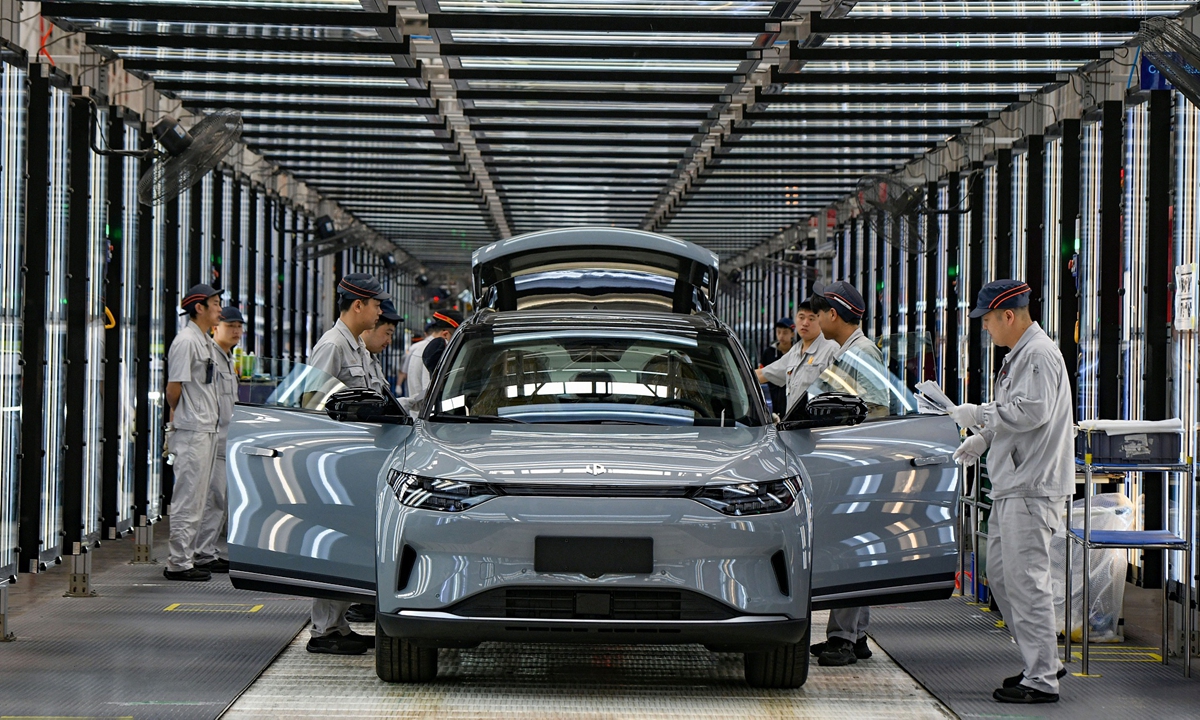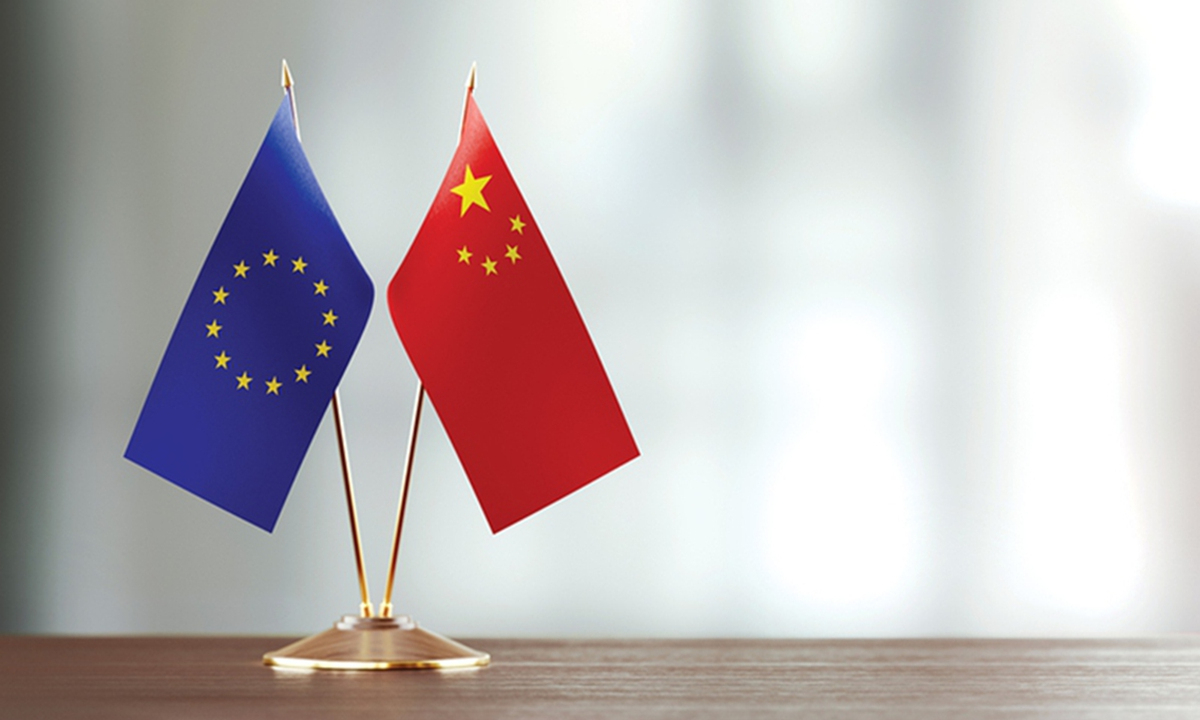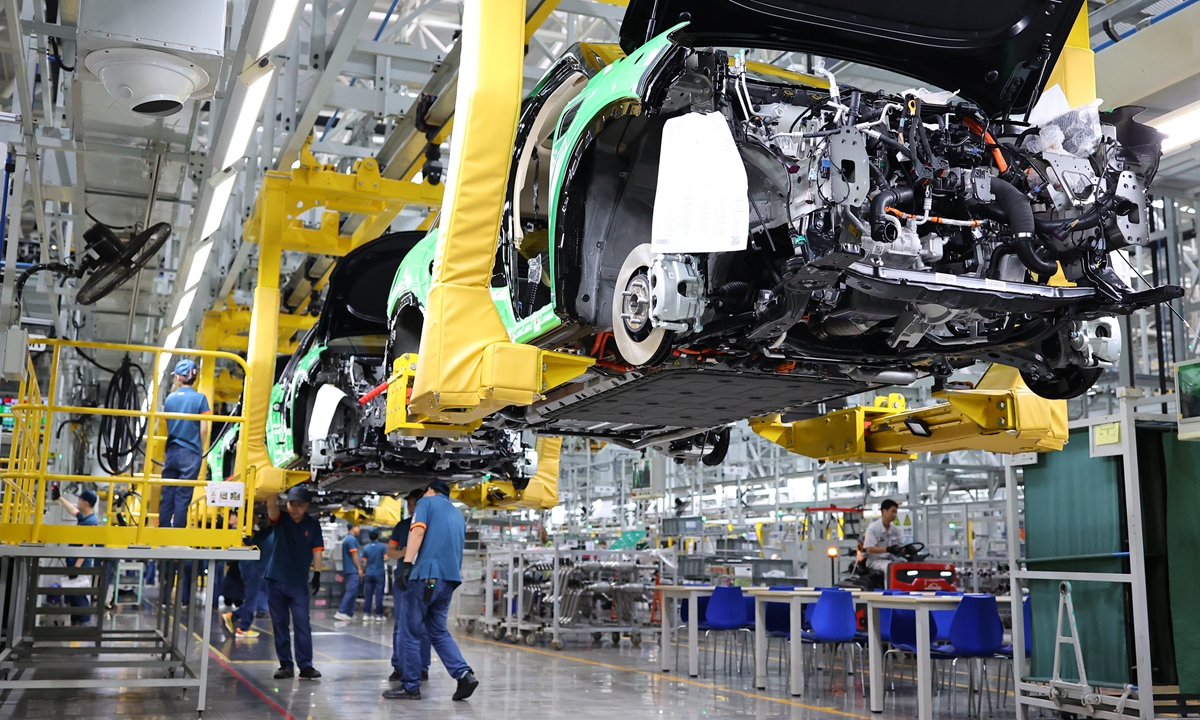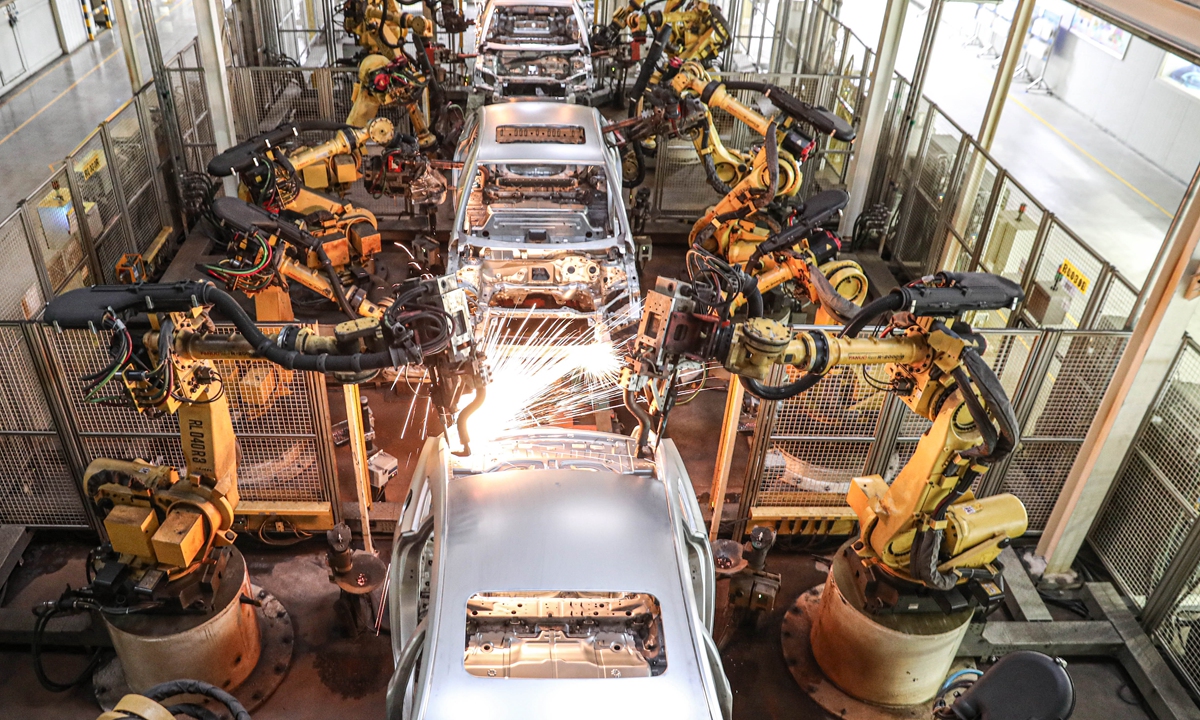US’ proposed ban on Chinese EV software, hardware protectionist: analyst
Crackdown measures won’t stop development of China’s auto industry: experts

Workers complete assembling an electric vehicle (EV) at China's EV start-up Leapmotor in Jinhua, East China's Zhejiang Province on April 1, 2024. The smart EV factory delivered 14,567 new vehicles in March, a yearly increase of 136 percent. Photo: VCG
Chinese experts on Sunday criticized a reported plan of the US to ban Chinese-made software and hardware in connected and autonomous vehicles in the US, saying the move lays bare Washington's reckless attempt to politicize trade issues and will hurt the global auto industry supply chain, including the US' own companies.Coming after Washington has announced hefty additional tariffs on Chinese electric vehicles (EVs), the proposal, which is said to be announced soon, further showed the US' all-out effort to contain the development of China's auto industry; however, such effort runs counter to basic economic laws and will not stop the development of China's auto industry, experts noted.
The US Department of Commerce is expected to propose a ban on Chinese software and hardware in connected and autonomous vehicles on US roads due to national security concerns, Reuters reported over the weekend, citing two unnamed sources. According to Reuter, the proposal is expected to be announced on Monday.
Specifically, import and sale of vehicles from China with key communications or automated driving system software or hardware would be banned. The US Commerce Department plans to implement the ban on software in the 2027 model year and the ban on hardware would take effect in January 2029 or the 2030 model year.
The reported ban comes after Washington recently announced a 100 percent tariff on Chinese EVs, in an attempt to crack down on the burgeoning Chinese EV industry. It also comes as US officials have stepped up the smear campaign against Chinese EVs and other products, often with fear-mongering rhetoric.
In May, Commerce Secretary Gina Raimondo even suggested that cars with Chinese software or hardware could be disabled. "You can imagine the most catastrophic outcome theoretically if you had a couple million cars on the road and the software were disabled," she said.
The series of crackdown measures highlighted Washington's anxiety over the rapid development of China's auto industry in recent years and its determination to resort to protectionist, costly measures to contain the rise of China's auto industry, experts said.
"In essence, by announcing the additional tariffs and other crackdown measures, the US also made it clear that it has fallen behind China in the new-energy vehicle sector," Lü Xiang, research fellow at the Chinese Academy of Social Sciences, told the Global Times on Sunday. "It has lost in the competition so it resorts to protectionist measures."
There are relatively few Chinese-made light-duty vehicles exported to the US, according to Reuters. In terms of software, including autonomous driving technology, some Chinese companies have been allowed to conduct tests in the US; however, there are no public reports of major sales to the US.
"In the long term, it means Chinese companies will lose a major market if the US implements the ban; however, the ban will also cause loses for US businesses and consumers," Xiang Ligang, director-general of the Beijing-based Information Consumption Alliance, told the Global Times on Sunday.
Xiang said that like the US' ban on Chinese telecommunications equipment and crackdown measures on other Chinese products, the proposed ban on Chinese auto software and hardware will also lead to higher costs for US businesses and consumers.
Notably, the US government's crackdown measures on China's auto industry have prompted fierce opposition from auto industries in the US and other countries.
A trade group representing major automakers including General Motors, Toyota, Volkswagen and Hyundai have warned that changing hardware and software would be difficult and take time, Reuters reported.
The additional tariffs on Chinese EVs have also drawn criticism from US businesses, which forced the US government to delay the announcement of a final determination twice. US EV makers and other businesses have asked for the higher tariff rates to be reduced, delayed or abandoned, and for potential exclusions to be greatly expanded, Reuters reported.
However, the US government has repeatedly disregarded pleas from the business community, laying bare the political motivation behind such actions, which will inflict huge damage for relevant industries, but fail to achieve the US' goal, experts said.
"It becomes increasingly clear that the US' protectionist industry policies have failed, and more protectionism will lead to even greater failure," Lü said, adding that there is huge room for cooperation in the auto industry, if the US stops politicizing trade and economic issues.




